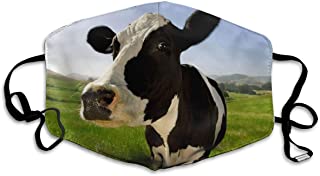
In 2011, EcoHealth Alliance, a non-profit organisation that works to protect people from emerging infectious diseases such as COVID-19, released the results of a survey showing that fewer than one in five respondents knew that most pandemics originate in animals. The COVID-19 outbreak, for instance, is believed to have originated in a Chinese “wet market” that sold sea animals, live birds, and exotic animals for human consumption.
Much like swine flu, bird flu, and SARS (which was also caused by a coronavirus linked to a Chinese wet market), COVID-19 spread from animals to humans, starting with those who worked in or frequented the market. Scientists suspect that they contracted the virus by eating or touching an animal who was infected.
This is yet another reason why we should all be vegan.
It’s bad enough that the consumption of meat and other animal-based foods contributes to heart disease, diabetes and cancer, and that harmful bacteria found in the intestines and faeces of animals, including salmonella and E coli, often cause outbreaks of food poisoning. Do we really want to add more deadly animal-borne diseases into the mix?
Many devastating disease outbreaks come about because humans house animals in filthy, severely crowded farms and markets – breeding grounds for pathogens – in order to satisfy their meat habit.
Elisa Allen Director of People for the Ethical Treatment of Animals (PETA)
It’s not at all unusual for viruses and other pathogens to jump from animals into the human population. According to the US Centers for Disease Control and Prevention (CDC), more than 75% of emerging infectious diseases originate in animals. Kevin Olival, a disease ecologist and conservationist at EcoHealth Alliance, says, “When you bring animals together in … unnatural situations, you have the risk of human diseases emerging.” In other words, many devastating disease outbreaks come about because humans house animals in filthy, severely crowded farms and markets – breeding grounds for pathogens – in order to satisfy their meat habit.
It’s easy for people in the UK to point the finger at China and other countries – including Mexico, where hundreds of sick pigs died on a massive farm in 2009 just before swine flu spread to humans. But there are disease-ridden animal factories around the globe, including here on our home soil. Our demand for meat means that huge numbers of animals, such as chickens and pigs are crammed together on crowded, faeces-ridden farms, transported in filthy lorries, and slaughtered on killing floors soaked with blood, urine, and other bodily fluids. Pathogens flourish in such conditions.
And to make matters worse, animals on factory farms are routinely fed vast amounts of antibiotics in order to keep them alive in filthy, disease-ridden conditions that would otherwise kill them. Because of this rampant use of antibiotics, certain bacteria have become resistant to even the most powerful ones, contributing to the emergence of “superbugs” – new, aggressive pathogens which are resistant to antibiotics. The CDC has stated that antibiotic resistance is “one of the world’s most pressing public health problems,” and other experts predict that at our current rate, more people will die of diseases caused by antibiotic-resistant bacteria than of cancer by 2050. This is a problem we cannot afford to ignore.
Obviously we all need to do our bit and #StayAtHome, but if we want to save even more lives – human and animal – and prevent future pandemics, we also need to #GoVegan.
Elisa Allen Director of People for the Ethical Treatment of Animals (PETA)
The World Health Organization (WHO) has declared the new coronavirus pandemic a public health emergency demanding international attention, and scientists are working to develop a vaccine, but that is likely to take at least a year. In the meantime, steps to help slow its spread, including avoiding social contact and practising good hygiene, are being taken. But one significant step to prevent outbreaks of animal-borne infectious diseases is missing: we have to stop eating animals.
Raising and killing animals for food threatens human health and causes tremendous animal suffering. Obviously we all need to do our bit and #StayAtHome, but if we want to save even more lives – human and animal – and prevent future pandemics, we also need to #GoVegan.
- Elisa Allen is the Director of People for the Ethical Treatment of Animals (PETA).
Naiara
Brilliant post! Agree 100%! It’s hard to believe that so many people seem to be oblivious to this, but tragically they are. Like the NHS frontline staff happy to be given thank you pork pies!: https://www.wakefieldexpress.co.uk/news/people/huge-pork-pies-delivered-front-line-hospital-staff-2542070 How can educated people be so blind?! Thank you for your post 🙂
LikeLiked by 1 person
Reblogged this on Violet's Vegan Comics and commented:
World wake up! Pleeeease!
LikeLiked by 1 person